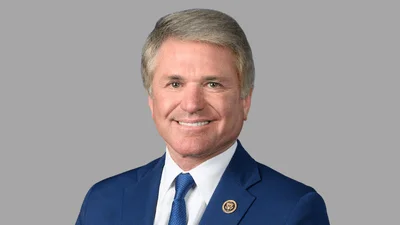Energy and Commerce Chairman Frank Pallone, Jr. (D-NJ) delivered the following opening remarks today at a Health Subcommittee hearing titled, “Communities in Need: Legislation to Support Mental Health and Well-Being:”
Today, the Committee continues its critical work to support the mental health and well-being of all Americans. Over the past year, this Committee has considered multiple mental health bills, several of which having already passed the House—such as legislation supporting the National Suicide Prevention Lifeline and the Minority Fellowship Program.
Today we will discuss 19 bills that collectively provide resources for mental health and substance use prevention, care and coverage, treatment, and recovery support services.
The need for mental health care is greater than ever: one in five American adults report that the COVID-19 pandemic has had a significant negative impact on their mental health. The pandemic has been particularly disruptive to young people – children are experiencing increasing rates of mental health conditions. Last week, the Centers for Disease Control and Prevention released a report finding that four in ten high school students in the United States said they felt persistently sad or hopeless during the pandemic.
Unfortunately, while the need for mental health services is greater than ever, Americans of all ages face a range of barriers to the care they need. These barriers include stigma and discrimination, provider workforce shortages, and concerns over the cost and coverage of care. The bills we are considering today will address all of these barriers as we continue to work to ensure people have access to the critical care they need.
Two of the bills we will consider from Representatives Cárdenas and Porter will help strengthen mental health parity, which is so critical to ensuring that people have access to care. The bills do this by applying mental health parity laws to self-funded state and local health plans and by providing critical funding to states to implement and enforce parity. I believe it is critically important that we achieve comprehensive parity, and these bills are another major step to meeting that goal.
We will also discuss bills from Chairwoman Eshoo and Representative Fletcher that will strengthen the behavioral health workforce and promote integration of physical and mental health care. Chairwoman Eshoo’s bill supports pediatricians, children's hospitals, and other providers to recruit and retain community health navigators, incorporate behavioral health services in pediatric practices, and expand telehealth services. Representative Fletcher’s bill provides resources for primary care physicians and practices to implement and evaluate models of care that integrate behavioral health and primary care services.
There are also several bills supporting linkages to care and services for those in times of crisis or recovery including recovery housing support and peer support services through virtual platforms.
We’ll also consider legislation from Representatives Hudson and Kuster that will ensure that Medicaid screens incarcerated children for medical and behavioral health issues when they are released and help states provide Medicaid-covered services in schools.
We will also discuss my bill to address the behavioral health needs of tribal populations through the creation of a “Special Behavioral Health Program for Indians,” modeled after the Special Diabetes Program for Indians.
While the growing mental health needs require innovative approaches to addressing the nation’s crisis, there are existing programs that need our continued support and future investment.
Today’s slate of bills also includes eight bipartisan bills that together reauthorize more than 30 Substance Abuse and Mental Health Services Administration, or SAMHSA, programs and two Health Resources and Services Administration, or HRSA, programs that expire this September.
These programs support mental health awareness, education, and prevention initiatives, care and crisis services, and workforce training.
The programs target those in greatest need—with interventions for children and young adults, those living in rural areas, and individuals experiencing housing insecurity.
These reauthorization bills present an essential starting point for future discussions as they move through the Committee. I hope we will have bipartisan support for increased funding for these existing programs to respond to the urgent and pressing needs of our constituents. I also hope we will be able to come to an agreement on the block grant reauthorizations and on how best to provide states with the resources and flexibility to expand prevention and early intervention efforts, as well as recovery support services.
I thank SAMHSA Assistant Secretary Delphin-Rittmon and HRSA Administrator Johnson, and our stakeholder witnesses, for joining us today.
I look forward to the discussion as we work to provide the critical investments necessary to support the mental well-being of all Americans.
Original source can be found here.









